-
Treating Recurring UTIs
Urinary tract infections, or UTIs, can happen to anyone, but when they recur, it’s important to see a urologist to pinpoint the cause and find the right UTI treatment. This video explains more about recurrent UTIs in women, who is most likely to get them, and what can be done to treat them.
Recurring UTIs may occur when the initial treatment was not effective. Typically, over-the-counter medications will not clear up an infection completely. In some cases, bladder stones can contribute to recurring UTIs as well.
Urology Associates, P.C. can help you get the right UTI treatment to put recurrent infections behind you. Make an appointment with a urologist in Nashville by calling (855) 901-1338.
-
Exploring the Link Between Diabetes and Kidney Stones
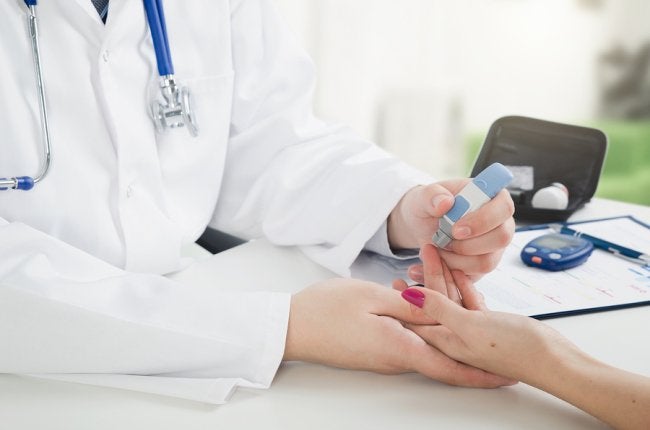
It is well-established that diabetes can increase the risk of kidney failure, particularly when it is poorly controlled. However, does the disease also increase the risk of kidney stones ? Here is what you need to know about the connection between diabetes and kidney stones and when you should see a urologist about your symptoms.
What are kidney stones?
Kidney stones are hard, stone-like formations of excessive calcium oxalate, struvite, uric acid, or cysteine. These substances can band together inside of your kidneys and form stones that range in size from minute to large and obstructive. When stones form, they eventually must pass out of your body through your urinary tract. Small stones can pass through your system with few, if any, symptoms. Large stones can be excruciatingly painful to pass and may get stuck in your urinary tract, where they can block the release of urine and trigger infections.
How does diabetes increase the risk of kidney stones?
Diabetes can increase the acidity of your urine. If your blood glucose levels are high, the acidity in your blood increases, which in turn causes the acid levels in your urine to increase. Acidic urine increases the risk of kidney stones. Following your diabetes care plan closely in order to control blood glucose and drinking plenty of water every day can help to reduce the risk.
When should you see a urologist for kidney stones?
See a urologist as soon as possible if you have symptoms of a kidney stone. These include nausea, vomiting, back pain, abdominal pain, and blood in the urine. If your stone is small, you may be able to pass it by increasing your water intake and using over-the-counter pain medicines. For large stones, your urologist may recommend procedures to break up the stone or surgical removal.
Urology Associates, P.C. provides treatment for a wide range of conditions, from UITs to kidney stones and bladder cancer. If you think you could have a kidney stone in Nashville, make an appointment by calling (855) 901-1338.
-
Spotlight on the Symptoms of Testicular Cancer
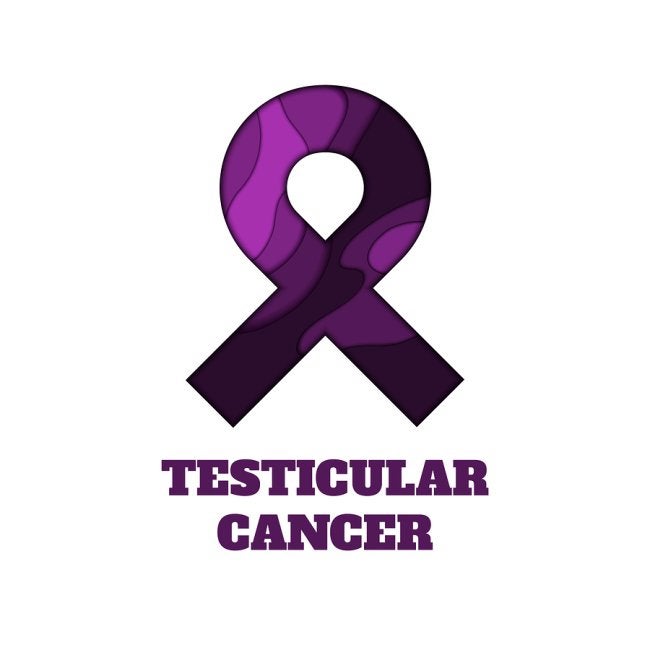 Testicular cancer is relatively uncommon, so men are often unaware of the symptoms. Unlike many kinds of cancer, about half of all cases of testicular cancer occur in young men between the ages of 20 and 34, though it can affect men at any stage in their lives, including in infancy. Typically, testicular cancer can be cured in its early stages, so it’s important to see a urologist if you think you could be experiencing any of these testicular cancer symptoms.
Testicular cancer is relatively uncommon, so men are often unaware of the symptoms. Unlike many kinds of cancer, about half of all cases of testicular cancer occur in young men between the ages of 20 and 34, though it can affect men at any stage in their lives, including in infancy. Typically, testicular cancer can be cured in its early stages, so it’s important to see a urologist if you think you could be experiencing any of these testicular cancer symptoms. Painless Lump
The most common indicator of testicular cancer is the appearance of a painless lump on a testicle. Occasionally, the lump may become tender or painful, but in the vast majority of cases, it is not. When you do experience pain with testicular cancer, it is more likely to be in the lower belly or in the entire scrotum rather than just at the site of the lump. It is often described as a deep ache or a feeling of heaviness.
Testicular Swelling
Some men with testicular cancer notice that one of their testicles has become larger or swollen. Although it’s natural for men to have testicles that are different sizes, with testicular cancer, an existing difference in size may become more pronounced. This can happen with or without the presence of a lump.
Breast Growth
Testicular cancer can lead to a hormonal imbalance that causes breast growth or tenderness in men. These hormonal changes can also result in a loss of sex drive. Pre-pubescent boys who develop testicular cancer may experience more pronounced hormonal symptoms, including the sudden deepening of the voice or facial hair growth.
The symptoms of testicular cancer can also be associated with a number of other conditions, so let a urologist at Urology Associates, P.C. make an accurate diagnosis, so you can get the appropriate treatment. For a diagnosis and testicular cancer treatment in Nashville, call (855) 901-1338.
-
What You Need to Know About Circumcision in Adulthood
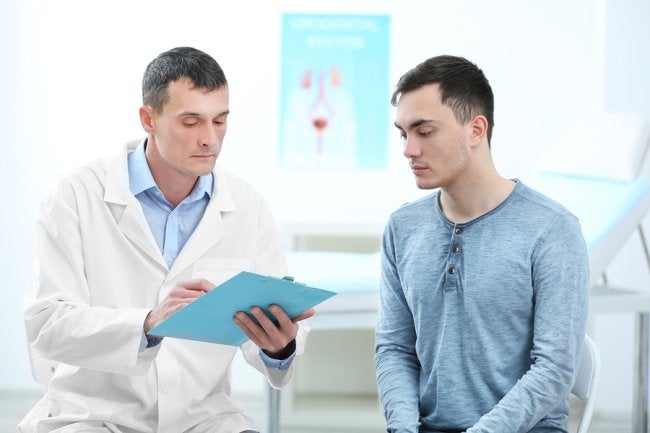
Circumcision, a procedure in which the foreskin of the penis is removed, is performed on about 65% of newborn boys in the U.S. Although circumcision is embraced for religious or cultural reasons, it is not medically necessary. Neither systemic nor sexual health is compromised by forgoing circumcision in the majority of cases, as long as proper hygiene practices are followed.
However, some uncircumcised men reach adulthood and decide that they would prefer to be circumcised. Generally, urologists recommend against having a circumcision performed during adulthood, unless there is a health problem. Some men have difficulty with recurring infections despite practicing good hygiene. Other men have difficulties with foreskin retraction. In these cases, a urologist can perform circumcision surgery to reverse the issues.
To discuss your options for circumcision in adulthood , schedule a consultation at Urology Associates, P.C. To make an appointment with a urologist in Nashville, please call (855) 901-1338.
-
Defining Lithotripsy
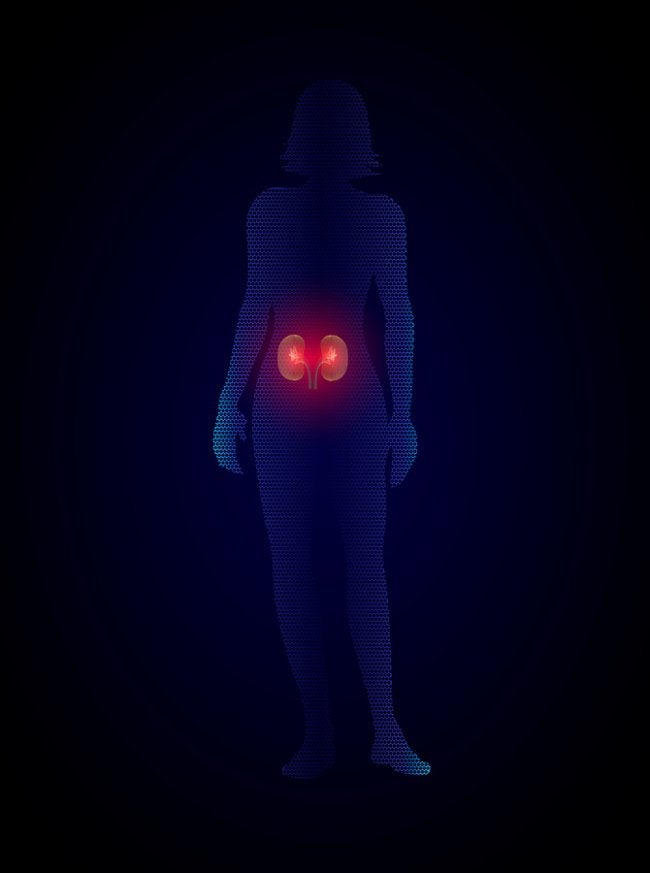
Not every medical procedure involves surgical incisions. Lithotripsy is a high-tech way to break up kidney stones. Your urologist may recommend lithotripsy if you have stones that are too large to pass, or if you have an anatomical abnormality that will make it difficult to pass the stones. Although electro-shockwave lithotripsy is not surgery, you will be placed under general anesthesia for the procedure.
Once you’re asleep, your urologist will use specialized equipment to direct high-energy shock waves through your body. These shock waves break up the stones into very tiny pieces. These pieces could be as small as a grain of sand. The entire treatment typically takes less than an hour. After the procedure, you’ll be advised to drink plenty of water to help the tiny bits flush out of your body with your urine. Lithotripsy is generally safe, but there are inherent risks with every medical procedure. Talk to your doctor about these risks before deciding whether to have lithotripsy.
Lithotripsy is one of the many advanced treatments we offer here at Urology Associates, P.C. If you’ve been told you may have kidney stones and you live in Middle Tennessee, give us a call at (615) 250-9200 to request our next available appointment.
-
Living with Kidney Cysts
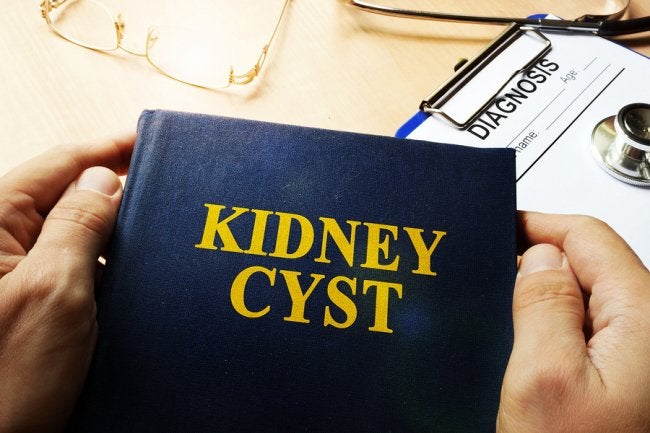
Cysts are noncancerous, fluid-filled sacs. They can develop in many different places in your body, and they aren’t always harmful. However, cysts in the kidneys can be dangerous. If you experience any possible symptoms of kidney cysts, or if your family doctor diagnoses you with polycystic kidney disease, you’ll need to work with a urologist to learn how to reduce your risk of complications.
Understanding Kidney Cysts
Kidney cysts can develop in people as they grow older. In many cases, they remain too small to cause any problems, and it’s possible to have a cyst or two without even knowing it. It isn’t quite known exactly why older adults are susceptible to kidney cysts , but some urologists suspect that it’s because the surface of the kidneys weaken later in life. Other people develop kidney cysts because of an inherited condition called polycystic kidney disease (PKD). Although the severity of this disease can vary from patient to patient, it’s possible for it to lead to severe complications, including kidney failure.
Identifying the Signs and Symptoms
Polycystic kidney disease usually begins causing symptoms after age 30 or 40. Cysts that develop in people without PKD are typically not diagnosed in patients younger than 50. Kidney cysts can cause these symptoms:
- Frequent urination
- Pain in the back or belly
- Pain in the side between the hip and ribs
- Fever
- Dark urine
- Bloody urine
In addition, people with PKD may develop these symptoms and complications:
- Extremely high blood pressure that causes a headache
- Chest pain
- Fluttering in the chest
- Frequent kidney and urinary tract infections
- Increased abdominal size
- Feeling of fullness in the abdomen
- Kidney stones
- Kidney failure
Exploring Your Treatment Options
If your kidney cysts aren’t caused by a disease, and they’re too small to cause symptoms, you might not need any treatment. Otherwise, your urologist may recommend surgical removal of the cyst. If you do have PKD, your treatment plan will depend on the complications you have. You may need medications to control high blood pressure, antibiotics to treat bladder or kidney infections, or dialysis to treat kidney failure.
Patients in Nashville with urologic health issues will find the thoughtful medical guidance and compassionate care they need at Urology Associates, P.C. We are a full-service urology clinic that provides cutting-edge treatments and comprehensive support for our patients. Schedule your consultation with one of our board certified urologists today by calling (615) 250-9200.
-
Gerald Breeden, PA-C, Explains the Link Between Osteoporosis and Prostate Cancer
Urologists know that men with prostate cancer are also at a higher risk of osteoporosis. In part, the association is due to age. The risk of both of these conditions increases for men aged 65 years and older. However, there’s another connection, which you can hear about when you watch this video.
It features Gerald Breeden, PA-C, a certified Physician Assistant at Urology Associates, P.C. He explains that the risk of osteoporosis increases in men with low sex hormones. Hormone deprivation therapy is one of the ways our urologists can treat prostate cancer.
The Men’s Health Clinic, at Urology Associates, P.C., offers a full spectrum of specialized medical services, including care for men with osteoporosis and prostate cancer . If you’re looking for a prostate cancer specialist in Nashville, call us today at (615) 250-9200.
-
Erectile Dysfunction: One More Reason to Quit Smoking
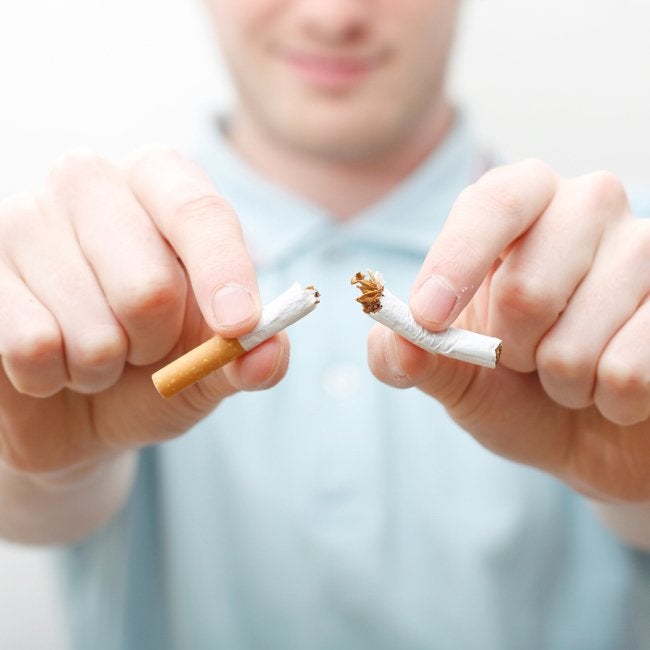
Erectile dysfunction (ED) is common, and has many potential causes and contributing factors. Some men discover that their ED is due to physical health conditions such as high blood pressure, diabetes, or heart disease. Others have underlying psychological issues, or a combination of mental health and physical health problems. Addiction is another possibility that urologists consider when evaluating a man for erectile dysfunction. Scientific research has linked tobacco use to problems achieving and sustaining an erection.
How Smoking Affects Sexual Health
A man’s sexual health depends on vascular health. When a man becomes sexually aroused, the nerves respond by telling the blood vessels in the penis to expand and fill with more blood. This causes an erection. However, smoking substantially damages the blood vessels, which affects their ability to respond to sexual arousal. Impotence is the result. Men who smoke, especially those who are heavy smokers, are more likely to suffer from ED. However, they can reverse the effects, and achieve faster, firmer erections by kicking the habit.
How Smoking Affects Fertility
It’s extremely hazardous to the health of a pregnant woman and her child when they live with a smoker. Even if a man only smokes outdoors, the smoke can drift inside the home, and the residue clings to clothing, fingers, and household surfaces. Even if this weren’t enough motivation to quit smoking, men should be aware that tobacco negatively affects fertility. It does this by damaging the DNA in sperm .
How Men Can Finally Kick the Habit
Most smokers who quit require multiple attempts before they achieve success, and the same smoking cessation method won’t necessarily work for everyone. A multi-pronged approach may work best. In addition to talking to a doctor about smoking cessation medications and nicotine replacement products, men might consider the following:
- Support groups
- Cognitive behavioral therapy
- Biofeedback
- Acupuncture
- Distraction techniques for cravings
- Hypnotherapy
At Urology Associates, P.C., smoking cessation is commonly recommended for our patients who smoke. Our urology team in Tennessee provides compassionate and discreet medical services at our Men’s Health Clinic. Call us at (615) 250-9200.
-
Introducing the WISH MedSpa

The Women’s Institute for Sexual Health (WISH) opened its newest venture the WISH MedSpa in February 2018. We are proud to offer a variety of MedSpa services including Botox®, Brow and Lash treatments, Chemical Peels, CoolSculpting®, Dermaplaning, Facials and Medical Grade Skin Care lines.
WISH provides specialized care to women facing the unique challenges of female urology and sexual and pelvic conditions. It is our mission to educate, treat and nurture each woman’s needs for sexual individuality and better pelvic health, and we are thrilled to provide our new service lines at the WISH MedSpa.
Your WISH clinicians are board certified UroGynecologists and Nurse Practitioners specializing in female sexual dysfunction. At the WISH MedSpa you will meet with Ellen Newman, Director of WISH Aesthetics, and Casey Nolen, WISH MedSpa Licensed Aesthetician, for all of your MedSpa treatments.
To schedule your appointment at the WISH MedSpa in Nashville, Tennessee, call our office at (615)250-9276 or find us on the MINDBODY phone application. Visit our website www.wishnashville.com for more details!
-
Hear the Clinical Director of WISH Explain Women’s Sexual Dysfunction
In discussions of sexual dysfunction, the focus is often on men. However, women complain of sexual health issues more often than men do, though they frequently go untreated. At the Women’s Institute (WISH) our specialists focus on helping women get the help they need to overcome sexual dysfunction disorders.
Watch this video to hear Brooke Faught, Clinical Director of WISH, discuss some of the conditions treated at the clinic. From low libido to persistent arousal disorders, WISH provides treatment for all forms of sexual health in women.
Take back control of your sexual health in Nashville by making an appointment with WISH today. To schedule a consultation at WISH (615) 250-9265.
Recent Posts
categories
- Uncategorized
- Bladder Cancer
- Women's Sexual Health
- MonaLisa Touch
- Urology
- Urologist
- Erectile Dysfunction
- Kidney Cancer
- Incontinence
- Prostate
- MonaLisa Touch Laser Treatment
- Kidney Stones
- Urinary Tract Infections
- Event
- Sexual Dysfunction
- Testicular Cancer
- Prostate Cancer
- Urology Surgery Center
- urinary incontinence
- vaginismus
- noncoital pain disorder
- Hypoactive Sexual Desire Disorder
- Infographic
- provenge
- Xofigo
- robotic surgery
- hormone replacement
- diabetes
- renal cell carcinoma
- pelvic pain
- hematuria
- sexual health
- chronic testicular pain
- premature ejaculation
- Men's Health Clinic
- Dr. Melvin Seard
- Interstitial Cystitis
- vasectomy
- overactive bladder
- vaginal atrophy
- nocturia
- bladder infections
- urethral strictures
- Acute Epididymitis
- low sex drive
- circumcision
- pelvic floor dysfunction
- Peyronie's Disease
- prostatitis
- female sexual dysfunction
- varicocele
- difficult urination
- low libido
- PSA levels
- male fertility
- penile prosthesis
- prostatic intraepithelial neoplasia
- male infertility
- estrogen levels
- nurse navigator
- stress urinary incontinence
- vaginal yeast infection
- elevated psa
- painful sex
- adult circumcision
- epididymitis
- OAB
- kidney infection
- penile cancer
- pelvic organ prolapse
- Vasectomy Reversal
- bone health
- cystectomies
- clinical trials
- bloody urine
- Advanced Therapeutic Center
- WISH MedSpa
- neurogenic bladder
- WISH Team
- prostate biopsies
- BPH
- fecal incontinence
- lithotripsy
- osteoporosis
- kidney cysts
